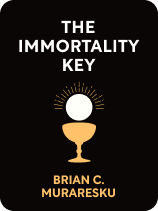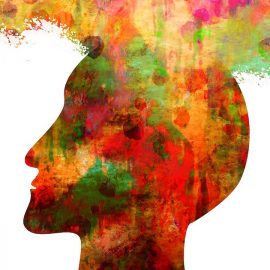

This article is an excerpt from the Shortform book guide to "The Immortality Key" by Brian C. Muraresku. Shortform has the world's best summaries and analyses of books you should be reading.
Like this article? Sign up for a free trial here.
What is the connection between mysticism and Christianity? Why did the early church want to overthrow mystical practices?
At the time of the birth of Christianity, the Greeks practiced a polytheistic religion, which included a rich mystical element. Practitioners sought to attain a profound spiritual connection with the supernatural through a direct mystical experience, which was facilitated by the ingestion of psychedelic brews.
Here’s how Christianity put an end to Greek mystical traditions and overtook the Greco-Roman world.
Eradicating Mysticism
In the eyes of Christianity, mysticism was bad for the social order because it allowed everyone the sacred experience and emphasized women’s important role in spiritual leadership. This undermined the authority of the Church as well as the patriarchal order.
The major problem the powerful elites wanted to eliminate, he says, was that people who “tasted the forbidden fruit” would not submit to orthodox teachings. So, the Orthodox branch of the church persecuted the Gnostics, and the prevailing power structure (backed by the emperor) eventually allowed them to dominate. By the fourth century AD, the Gnostic mysteries had been all but eradicated. At this point, Muraresku believes the original (psychedelic) sacrament was replaced by a placebo, which became the Eucharist as we know it today.
Muraresku also points out that this “anti-drug” campaign has continued throughout the history of the Christian church, not only in the persecution of women but in the colonization of indigenous peoples, as well as being observable in the attitudes of Christianity today toward drugs.
He presents some examples of this to show that the Christian church has an explicit agenda to eradicate mysticism, specifically because it makes people impossible to convert and control. Two key examples of this include:
1) The Aztecs and ololiuhqui: According to Muraresku’s research, ololiuhqui was the most commonly used entheogen (medicinal hallucinogen) by the Aztecs. In a 1629 letter, a Spanish missionary said the Aztecs consult it for gaining knowledge “beyond human understanding.” The priests seized the ololiuhqui and kept people from accessing it, even razing the fields where it was being grown.
2) Native Americans and peyote: Peyote, a psychedelic cactus, has long been used as an entheogen by some Native American tribes. Muraresku tells us that in 1890 the US launched a concerted effort to eliminate it, saying it was “interfering with the work of the missionaries” on the reservations.
These examples are meant to show that the opposition by the Christian church to mysticism, and specifically to mystical experience through psychedelic drugs, is not simply a matter of preference or prejudice. According to Muraresku’s argument, it’s a 2,000-year deliberate effort to restrict the population’s access to a transcendental awareness that might liberate them from the need for scriptural dogma.
| Reality or Hallucination? In his book How to Change Your Mind, Michael Pollan suggests that we are entering a “psychedelic renaissance.” He addresses the skeptical criticism that psychedelic experiences are simply hallucinations by pointing out that the modes of consciousness we experience are all products of our brains. He says that what we think of as our default mode of consciousness might not always be the best way to approach every aspect of life, arguing that perhaps the molecules in psychedelics just open up other modes of consciousness that we’re ordinarily unable to access but can give us great benefits. This is why the term “hallucinogen” is often shunned by anthropologists and psychedelic advocates—it implies a false experience. Pollan points out that the effects psychedelics have on people are very real, and since we clearly have the capability to experience a variety of modes of consciousness, there’s no valid reason to presume our everyday waking mode is the only one that produces an experience of reality. |

———End of Preview———
Like what you just read? Read the rest of the world's best book summary and analysis of Brian C. Muraresku's "The Immortality Key" at Shortform.
Here's what you'll find in our full The Immortality Key summary:
- The secret that kept ancient Greeks and early Christians from fearing death
- The origins of Christianity and its overlap with pre-existing pagan customs
- The real reason why women can't be priests






